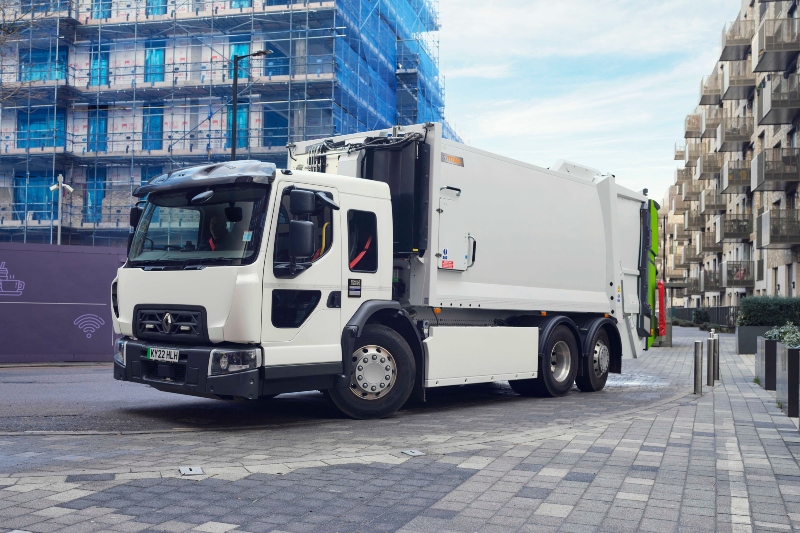

Last November, Barcelona City Council announced it had awarded its latest public contract for municipal waste collection and maintenance to several sub-contractors who all share the council’s commitment to decarbonised urban mobility. The companies – CLD Sorigué, Urbaser, and Valoriza (Sacyr Group) – chose Renault Trucks to provide 73 fully electric trucks.
This is, as Andrew Scott, head of Electric Mobility at Renault Trucks, puts it a ‘bold’ move. The vehicles themselves are impressive. Renault Trucks E-Tech D, D Wide, and D Wide LEC can be equipped with a wide range of body designs to meet the needs of most municipalities, including rear loaders (single and dual compartment), side loaders (right and left), sweeper-sprayer tankers, tipper and crane trucks, lifting hooks, and low-entry cabs.
But the boldness referred to by Mr Scott is the commitment of the city council. ‘This is the first big volume tender that we’ve won in Spain,’ he tells me. ‘I think it’s significant because of its size. Barcelona has done what probably no other authority has done which is go big on electric.’ He contrasts the Catalan capital’s all electric investment with the more tentative approach taken by local authorities in the UK: ‘I don’t think any in the UK are as bold in their vision as Barcelona’.
Mr Scott makes clear that he is not critical of any local authorities who wish to tread carefully when it comes to making the transition to electric vehicles. He recognizes that in terms of capital costs eRCVs are considerably more expensive than diesel trucks and that local government is operating within tight fiscal constraints. ‘I’ve met guys who say, “I can’t keep the rain out of the building but I’m meant to run 50 electric vehicles from it?”’ he tells me.
Funding in the UK is one hurdle on the road to fleet decarbonisation. ‘Our operators are telling us that in terms of whole life costs there is parity between a diesel and an electric vehicle because of the volume of diesel the vehicle will consume and the cost of that. But the funding model in the UK does not yet reflect that,’ he explains. ‘The system is a little bit inflexible.’
Political will is another hurdle. ‘Barcelona is the outcome of a very overt political decision to decarbonize their fleet starting with the big ticket items, which are the refuse vehicles,’ Mr Scott says. ‘I’ve not seen anybody having the confidence or the political or financial will in the UK to do that.’
There is some progress in the UK with many eRCVs at work across the country. And Renault Trucks is playing their part. Following an extensive development and evaluation process, Enfield Council recently took delivery of its first fully-electric 26 tonne Renault Trucks E-Tech D Wide refuse truck (see p.5). Three more vehicles will join it by summer. This is a small step on the road to decarbonisation but at least the direction of travel is promising.
Looking forward, Mr Scott says that councils need to stop asking whether they can afford electric vehicles and need to ask instead whether they can justify buying diesel vehicles. The establishment of ultra-low emission zones and the net zero agenda means that fleet decarbonisation is going to be a priority for a long time, and so buying cheaper diesel vehicles could prove a false economy. Asking whether it is possible to justify buying a diesel vehicle would ‘force people to look a bit more proactively into how to decarbonize their fleet,’ according to Mr Scott. ‘Because the short termism [of buying diesel vehicles] is actually just storing up problems for three or four years down the line.’
He is confident that electric vehicles will become the norm. ‘There will come a tipping point when electric vehicles are seen as being the norm because they’re quieter, they don’t have any noxious gases coming out of the back, they’re easier for the drivers – all of these soft factors will become business as usual.’ And once a more flexible funding model is in place and more people feel it’s possible to be bold, perhaps – who knows? – the Barcelona example can be replicated throughout the UK.
This article first appeared in the spring issue of LAPV. To subscribe for free click here.